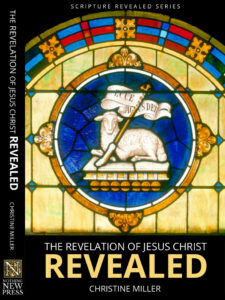Read Revelation 9 at Bible Gateway.
Revelation 9, The fifth trumpet: The army of locusts
Revelation 9, The duration of the fifth trumpet
The Mohammedans, when they went to overtake a new province, always offered friendship first, that is, if the king and people converted to Islam, then they were friends. But if they would not convert, then they were allowed to keep their religion, with restrictions (no new churches could be built, witnessing was forbidden, holy day observances were restricted, etc.) but were required to pay a tribute to the Caliph.
But if they would not pay tribute, then the Mohammedans would wage war on the province, and when it had been conquered, the vanquished would receive whatever terms seemed good to the conquerors. But when war was waged, the Mohammedans were forbidden to kill women and children, or those living simple lives of piety in the monasteries. This governing principle of proselytizing was summed up by the phrase, “Islam, tribute, or the sword.”
Since the Mohammedans did not resort to the sword first (and when they did, it was with restrictions) they fufilled the injunction not to kill. But since the conquered were required to live under Islamic rule with many restrictions, and live as second class citizens, and pay tribute, the injunction to torment was fulfilled.
The fifth trumpet is the first judgment where a bit of time elapsed between the it and the previous judgment. The fourth trumpet of judgment on the light of the sun, moon, and stars going out for one third of the Roman Empire began in 476. The rise of Islam does not begin until 612, when Mohammed received the vision of Islam and began publicly preaching it.
What happened in the Christian church in those intervening years? Benedict lived from 480 to 543, and he established the Benedictine Rule and the first order of monks. Justinian the Great, emperor of the East at Constantinople, retrieved North Africa from the Vandals (548) and Italy from the Ostrogoths (554), but then was too remote a ruler to fully bring these provinces into the Eastern Empire.
In 563, Columba, the Irish missionary to Scotland, founded the monastery on Iona. But probably the most telling event was Gregory the Great, who was pope in Rome from 590 to 604. It was from his reign that the Christian church really took on the identity of the Roman Catholic church, in government, administration, and influence, that was to characterize it during the Middle Ages. This is why Gregory is known as The Great.
Just a few years after his death, the angel appeared to Mohammed, and eight years after his death, Mohammed was preaching Islam in Mecca.
Now why is it that men would long to die, under the torment of the army of locusts, but could not? Every man in Christendom was born and baptized into the Roman Catholic Church, especially after the reign of Gregory the Great. It everywhere governed and influenced society. Membership was not voluntary, as it is today; the notion of having a choice about it never even entered anyone’s mind. The thought of not being a part of the Church never even entered anyone’s mind. The Church was the West.
This was why the threat of excommunication was so effective; it essentially cut a person off from society. That person had no way to buy or sell; no way to conduct business; no way to work; relationships with others were not possible, for the excommunicate was shunned completely.
Now here is the Church’s teaching on suicide:
“That suicide is unlawful is the teaching of Holy Scripture and of the Church, which condemns the act as a most atrocious crime and, in hatred of the sin and to arouse the horror of its children, denies the suicide Christian burial.” – Suicide, The Catholic Encyclopedia
“Further, Christian burial is to be refused to suicides (this prohibition is as old as the fourth century; cf. Cassian in P.L., XL, 573).” – Christian burial, The Catholic Encyclopedia
The fourth century is the 300s. So by 612, the prohibition against suicide was well established in the Roman Empire, both east and west. Those who committed suicide could not receive Christian burial. Without Christian burial, there could be no resurrection or salvation, it was believed.
Thus, “And in those days people will seek death and will not find it. They will long to die, but death will flee from them.” Rev 9:6
Revelation 9, The conclusion of the fifth trumpet
Revelation 9, The four angels of the sixth trumpet
Revelation 9, The sixth trumpet: Crossing the euphrates
Revelation 9, The duration of the sixth trumpet
Revelation 9, The sixth trumpet army
Revelation 9, The trumpets did not inspire repentance
Return to Revelation Index of Studies
Christine’s book The Revelation of Jesus Christ Revealed, based on these studies but greatly expanded, is now available from Nothing New Press. You may also be interested in reading the Book Extras and joining in on the Discussion.
As well, Revelation in Chiastic Structure is also available.

















Leave a Reply